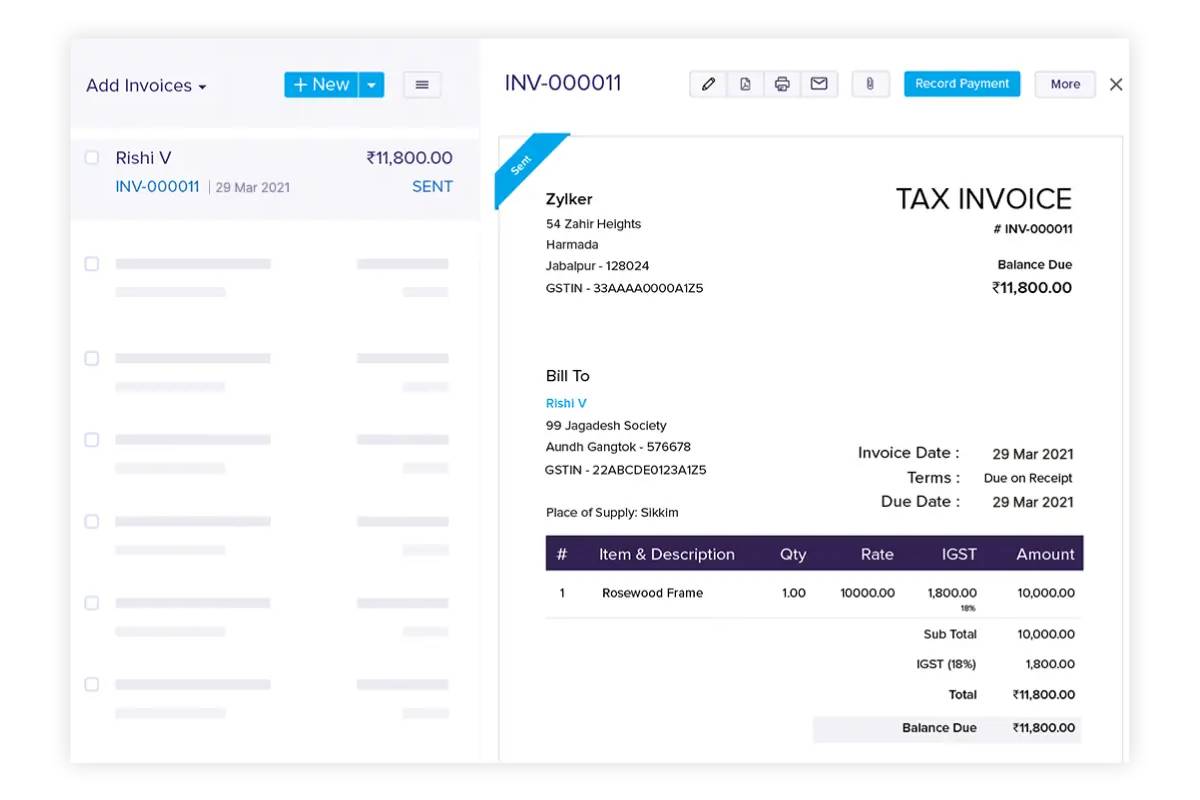
Sole Trader vs. Limited Company: Tax Differences
You’ve got the big idea. You’re ready to start freelancing or launch your own business. But before the invoices go out or the sales roll in, there’s a key decision that could shape your financial future: should you operate as a sole trader or form a limited company?
It’s more than just paperwork—it’s about how much tax you pay, how you pay yourself, and how protected your personal finances are. For many, the decision feels like navigating a maze of jargon and HMRC rules. But it doesn’t have to be.
In this blog, we’ll break down the core tax differences between sole traders and limited companies, with relatable examples and clear comparisons. You’ll understand how each structure works, what suits your current goals, and how to avoid costly mistakes down the line.
Let’s help you choose the best fit for your business and financial peace of mind.
What’s the Difference Between a Sole Trader and a Limited Company?
Sole Trader: Simple and Straightforward
- You run the business as an individual
- You’re personally responsible for all debts and liabilities
- You report income and expenses via Self-Assessment
- Your profits are taxed as personal income
Ideal for: Freelancers, consultants, side hustlers, and new businesses testing the waters.
Limited Company: More Structure, More Separation
- The business is a separate legal entity
- You’re a director and potentially a shareholder
- Profits are taxed separately via Corporation Tax
- You can pay yourself through a combination of salary and dividends
Ideal for: Businesses with higher profits, multiple directors, or those seeking long-term growth and investment.
The Big One: Tax Differences

Let’s get into the heart of it—how you’re taxed under each structure.
1. Income Tax (Sole Traders)
As a sole trader, your profit is treated as personal income.
Taxed using income tax bands:
| Band | Taxable Income | Rate |
|---|---|---|
| Personal Allowance | Up to £12,570 | 0% |
| Basic Rate | £12,571 – £50,270 | 20% |
| Higher Rate | £50,271 – £125,140 | 40% |
| Additional | £125,140+ | 45% |
Example: If you make £40,000 profit as a sole trader, you’d pay roughly:
- 20% on £27,430 (£5,486)
- Plus National Insurance (see next section)
You pay tax on all profits, whether you reinvest in the business or withdraw the money.
2. Corporation Tax (Limited Companies)
Limited companies pay Corporation Tax on their profits.
As of 2024/25, this is:
- 19% for profits up to £50,000
- Up to 25% for profits over £250,000 (marginal relief in between)
But—here’s the key—you only pay personal tax when you draw money from the company.
Example: Your company earns £40,000 profit:
- Corporation Tax: £7,600 (19%)
- Remaining: £32,400
Then you can decide how to pay yourself: salary, dividends, or a mix.
Paying Yourself: Tax Efficiency Matters
Sole Trader
You don’t pay yourself a salary—it’s all yours. But the downside? You’re taxed on 100% of your profits.
There’s no flexibility in how income is taken.
Limited Company
You can split your income strategically:
- Salary (deductible from company profits)
- Dividends (taxed at lower rates)
| Income Type | Tax Rate (basic rate) |
|---|---|
| Salary | Income tax + NIC |
| Dividends | 8.75% (up to £50,270 combined income) |
Pro Tip: Pay yourself a small salary (under NIC threshold) + top up with dividends = lower overall tax.
This is why limited companies are more tax-efficient at higher profit levels.
National Insurance Contributions (NICs)
Sole Trader NICs
You pay:
- Class 2 NICs – £3.45/week (if profits over £6,725)
- Class 4 NICs:
- 9% on profits between £12,570 – £50,270
- 2% on profits over £50,270
These add up quickly and are on top of income tax.
Limited Company NICs
You pay:
- Employer’s NIC – 13.8% on salary over £9,100/year
- Employee’s NIC – 12% on salary over £12,570/year
But dividend income is NIC-free—another reason many company owners use a low salary + dividends approach.
VAT: Same Rules, Different Admin
VAT applies the same way regardless of your structure. If you expect turnover over £90,000 (2024 threshold), you must register.
But…
- Sole traders report VAT via their Self Assessment
- Limited companies file separate VAT returns under their company name
Using Making Tax Digital (MTD)-compliant software is now a must for all VAT-registered businesses.
Admin, Costs, and Paperwork: Not Just About Tax
Sole Trader
- Easier to set up (via GOV.UK)
- Fewer admin requirements
- No need for formal accounts
- Submit annual Self-Assessment
Costs: Minimal—mostly software and an accountant (if used)
Limited Company
- Must register with Companies House
- File annual accounts, confirmation statements, and corporation tax returns
- Director responsibilities (legal and financial)
- More scrutiny and paperwork
Costs: Higher—an accountant is strongly recommended, annual filing fees apply
Legal and Financial Risk
Sole Trader: Full Personal Liability
You are the business. If things go wrong—debts, lawsuits, contracts—you’re personally liable. Your personal assets (like your home or savings) could be at risk.
Limited Company: Limited Liability
Your business is a separate entity. Your personal assets are protected (unless you’ve given personal guarantees). This offers greater peace of mind for businesses with bigger contracts or higher risks.
When Should You Switch from Sole Trader to Limited Company?

You Might Stay a Sole Trader If:
- You’re testing a new business idea
- You earn under £30,000/year
- You prefer simplicity and flexibility
- You’re not seeking investment
You Might Go Limited If:
- You earn over £35,000–£40,000/year
- You want to reinvest profits or save tax
- You plan to grow, hire, or raise funding
- You need limited liability protection
Rule of Thumb: Once your freelance profits pass £40,000, it’s worth running the numbers to see if you’d save with a limited company.
Real-Life Story: Hannah the Marketing Consultant
Hannah started as a sole trader, earning £28k in her first year. Her business model was simple: just a few clients, minimal expenses, and one annual tax return.
By year three, she was making £55k and paying around £12k in tax and NICs.
After switching to a limited company and using a small salary and dividends, her tax dropped to around £9k, and she gained better protection for working with bigger clients.
Her takeaway?
“Switching saved me thousands and gave me peace of mind—but I’m glad I waited until I was ready for the extra admin.”
Pros and Cons Summary Table
| Feature | Sole Trader | Limited Company |
|---|---|---|
| Setup Ease | Simple, quick, low-cost | Requires registration with Companies House |
| Tax Treatment | Taxed as income | Corporation Tax + personal tax |
| Admin Required | Low | Higher (accounts, filings) |
| Tax Efficiency | Limited (especially over £40k profit) | Flexible (salary + dividends) |
| National Insurance | Paid on all profit | Avoided on dividends |
| Personal Liability | Full (you’re liable) | Limited (company is separate) |
| Business Credibility | Moderate | Higher (looks more professional) |
Conclusion: Make the Right Choice for Where You Are Now

There’s no one-size-fits-all answer. Being a sole trader is perfect for getting started or keeping things lean. A limited company can offer better tax savings and more protection—but it comes with added complexity.
Your Key Takeaways:
- Sole traders pay tax on all profits via Self Assessment
- Limited companies pay Corporation Tax, then personal tax when drawing income
- Dividends (via a limited company) are more tax-efficient at higher income levels
- Admin and responsibilities are higher with a limited company, but so are the benefits
- Once your profits exceed £35–40k, it’s worth considering the switch


